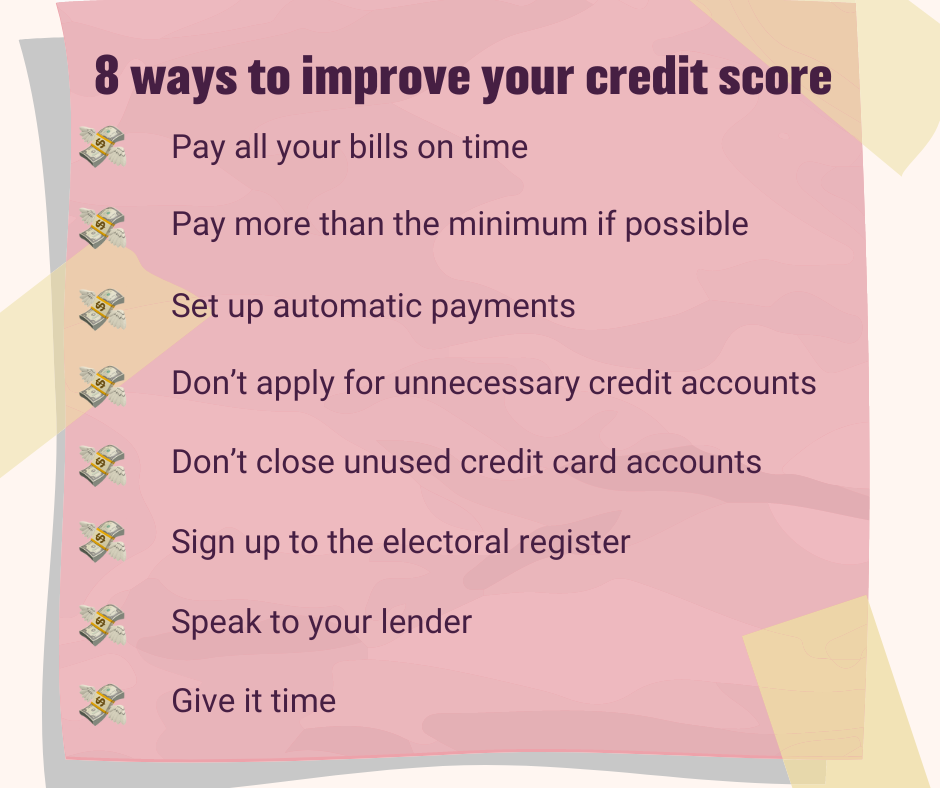In this lesson you will learn 💸
- What liabilities are
- What a credit score is
- How you can improve your own credit score
What is a credit score?
A liability is something that you owe. One aspect of all of this is your credit score - but what does that actually mean?
A credit score is...
a number which helps to show lenders how reliable you are with money. It can be used to determine whether you can get a mortgage or personal loans, for example. This means it’s important to try and keep your credit score as high as possible - the higher the score the more likely you are to get approved for loans and mortgages.
How can I check my credit score?
It’s free to check your credit score. Usually your credit score is determined by credit score rating agencies. In the UK, you can check your credit score with one of the main rating agencies Equifax, Experian or Transunion.
What are credit score benchmarks?
Credit scores are calculated using information on your credit reports and each rating agency will uses a slightly different method.
The results you get might vary depending on the scoring model, so 'good' will be a different score to one agency compared to another that uses a different grading scale. In most cases credit scores generally range from 300-850.
Generally scores are considered:
To determine what is considered fair, good or very good, it works best if you check the definition from the agency you are using.😉

- Pay all your bills on time: this includes credit card bills, even if you’re just paying the monthly minimum payments.
- Pay more than the minimum wherever possible: this shows a level of reliability that generates trust.
- Set up automatic payments: this can help you to safeguard your finances against forgetfulness, which happens to the best of us!
- Don’t apply for unnecessary credit accounts: each credit application generates enquiries into your score which can affect it negatively - this is called a ‘hard enquiry’, and is an indicator of uncertainty for lenders.
- Don’t close unused credit card accounts: so long as these accounts aren’t costing you anything, consider keeping them open - they tell a story about your good financial management.
- Sign up to the electoral register: this is completely free, quick to do, and it helps credit agencies to confirm your identity easily.
- Speak to your lender: this is especially important if you are having problems with repayments - a little communication goes a long way.
- Give it time: a negative entry on your credit report will fade away with time, especially if you’re putting in the work to improve your credit. Make sure you’re not being too hard on yourself.
Your action 📝
If you have not done so already, check your credit score. It's free and you'll get an idea if you need to take some steps to improve it.